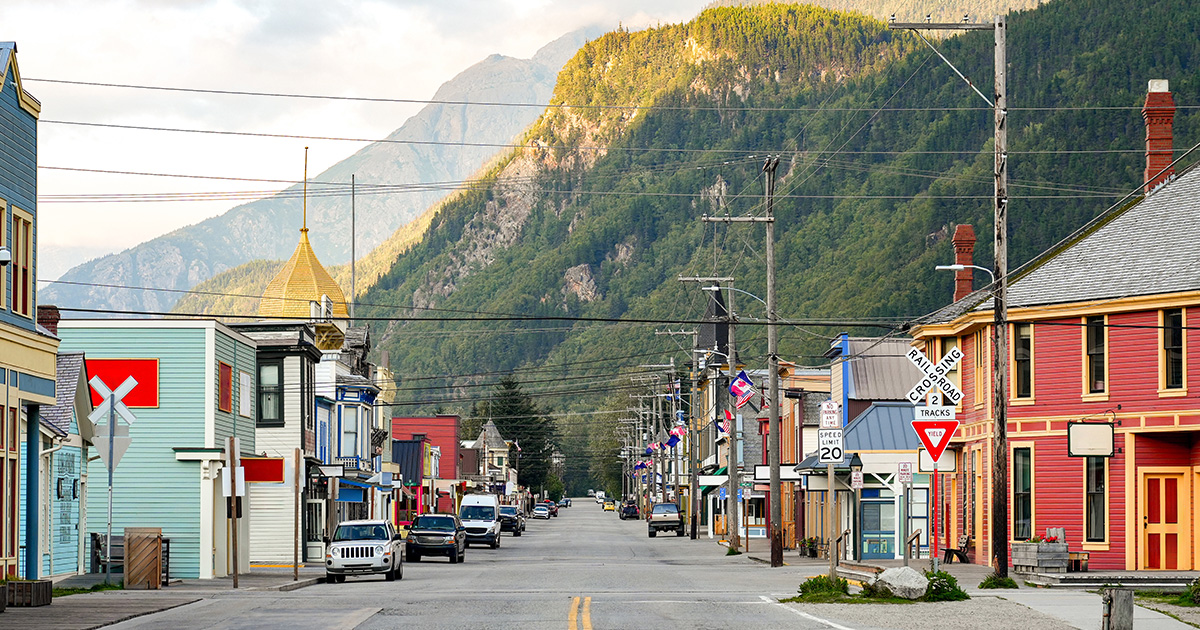
Have you ever thought about place names? We’ve been on vacation for the last week and a half and had occasion to drive past (and through) lots of places given interesting names. And I’ve apparently had too much time to think about them.
Some places were obviously named for a leading or original resident. Our hometown Galesburg was named for George Washington Gale in 1837. He was the one who bought the land and established a college there, so why not? Anyone ever heard of Jamestown, NY? Our choir members surely have! But it begs the question, who was this James anyway, and shouldn’t it have been renamed “Lucilleburg” after its most famous personality (Lucille Ball)? Or maybe Jerrytown?
Some place names obviously reflect the hope of recapturing a sense of home in a new or better setting. New Sweden, Maine, was likely settled by Swedes reminded of the old country by the brutal winters and dense woods. Hoping for better? Oops. Then there’s New York. Nostalgic, isn’t it? But New York, NY? Doubling down on it sounds like someone should have just stayed in England!
Some names were aspirational — New Haven. Ahhh… Some reflect pretty mild expectations — like Fairlane. Why not make it a Greatlane or even just Goodlane for Pete’s sake? But “Fair” was what they settled for?
Other names were likely common (and appropriate) references that became official by widespread repetition. Care to guess what Mud River in southern New York state looks like? And I wonder what happened in Ashville (or what happened once, just upwind). Why would anyone name a place Pittsburgh or Pittstown or Pittsville? Either there were a lot more folks named Pitt in the old days, or a lot of places simply were “the pitts.” And if one turned out to be a truly handsome spot, wouldn’t there be a movement to rename it Bradpittsburgh?
My favorite town name on this trip has been Onoville, NY, (“Oh no!” ville). I wonder what happened there, and how often! Mr. Bill (the Saturday Night Live claymation character from years ago) might have come from there.
The place name Bethlehem, PA, reflects the Christian faith and hope of its founding residents. Its inspiration, Bethlehem, Israel, meant “house of bread” —f or the fact it was the bread-basket of the region. How about “the Promised Land?” It was the place promised by God to his people, and he led them there and delivered it into their hands. We’re told that the name Jerusalem combines a sense of awe with the hope of shalom or peace (everything as it really ought to be). For God’s people, Jerusalem has long represented God’s place and presence. And the “New” Jerusalem? Truly, everything the way it really ought to be, just as God has always intended.
Then I saw a new heaven and a new earth, for the first heaven and the first earth had passed away, and the sea (representing chaos and the unknown) was no more. And I saw the holy city, the new Jerusalem, coming down out of heaven from God, prepared as a bride adorned for her husband. And I heard a loud voice from the throne saying, “See, the home of god is among mortals. He will dwell with them, they will be his people, and God himself will be with them; he will wipe every tear from their eyes; death will be no more; mourning and crying and pain will be no more, for the first things have passed away.” And the one who was seated on the throne said, “See, I am making all things new.” (Revelation 21:1-5a)
God is indeed making “all things new.” Restored to new condition. Unblemished. Recognizable as itself, but just the way it really ought to be. Can you see it?